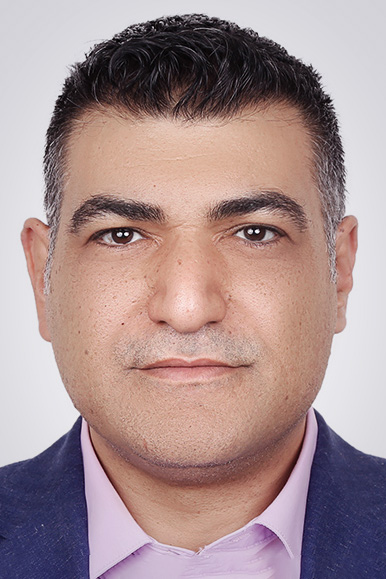

 ICANN's role in Smart Africa's governance blueprint highlights a widening divide between legality and legitimacy. Funding and participation occurred without early community consultation, raising concerns about procedural integrity, RIR independence, and the precedent such interventions may set for global Internet governance. more
ICANN's role in Smart Africa's governance blueprint highlights a widening divide between legality and legitimacy. Funding and participation occurred without early community consultation, raising concerns about procedural integrity, RIR independence, and the precedent such interventions may set for global Internet governance. more
 ICANN is finalising a policy to curb DNS abuse, aiming to preserve internet stability while defending freedom of expression. With regulatory pressure mounting, the multistakeholder model faces a critical test. more
ICANN is finalising a policy to curb DNS abuse, aiming to preserve internet stability while defending freedom of expression. With regulatory pressure mounting, the multistakeholder model faces a critical test. more
 As multistakeholder governance nears a critical juncture, leaders must navigate diverging views, geopolitical pressures and technological upheaval. With sovereignty concerns mounting, the Internet's institutions face a complex future that demands deft stewardship. more
As multistakeholder governance nears a critical juncture, leaders must navigate diverging views, geopolitical pressures and technological upheaval. With sovereignty concerns mounting, the Internet's institutions face a complex future that demands deft stewardship. more
Alice Munyua criticises ICANN's support for a proposed African internet governance overhaul, arguing it undermines multistakeholder principles and sets a dangerous precedent of political interference in global internet infrastructure. more
 The legitimacy of the ICANN multistakeholder model and its governance framework are facing an existential threat requiring immediate attention. The recently announced results of the ICANN Nominating Committee highlight how the ICANN Board is captured by "affiliated" directors, which threatens its independence and ability to act for the public interest. more
The legitimacy of the ICANN multistakeholder model and its governance framework are facing an existential threat requiring immediate attention. The recently announced results of the ICANN Nominating Committee highlight how the ICANN Board is captured by "affiliated" directors, which threatens its independence and ability to act for the public interest. more
The credibility of ICANN's much-vaunted programme to expand internet domains is under strain. Governments and user representatives have warned that the Applicant Support Program (ASP) - a scheme offering fee discounts to poorer or non-profit applicants for new top-level domains (gTLDs) - is failing to reach its intended beneficiaries. more
The Internet Corporation for Assigned Names and Numbers (ICANN) has issued a stern open letter to the Government of Mauritius and the court-appointed receiver of AFRINIC, the Regional Internet Registry (RIR) for Africa and the Indian Ocean. The letter, dated July 16th, expresses grave concern over AFRINIC’s governance failures, opaque election practices, and recent attempts by a controversial resource member to dissolve the organization. more
Mounting governance woes at the African Network Information Centre (AFRINIC) have drawn a sharp rebuke from the Internet Corporation for Assigned Names and Numbers (ICANN), which has issued a stern warning of a potential compliance review. more
The Internet Corporation for Assigned Names and Numbers (ICANN) has issued a formal call for greater transparency and procedural integrity in the ongoing board elections of the African Network Information Centre (AFRINIC). more
 The NetBeacon Institute is pleased to publish its White Paper: Proposal for PDPs on DNS Abuse. We created this paper to support and advance ICANN Community discussions on potential policy development related to DNS Abuse. From our unique perspective, we believe there are a number of issues that are constrained enough to be a successful ICANN PDP and can make a meaningful difference in our collective work against DNS Abuse. more
The NetBeacon Institute is pleased to publish its White Paper: Proposal for PDPs on DNS Abuse. We created this paper to support and advance ICANN Community discussions on potential policy development related to DNS Abuse. From our unique perspective, we believe there are a number of issues that are constrained enough to be a successful ICANN PDP and can make a meaningful difference in our collective work against DNS Abuse. more
 On Jan. 11, 2025, Verisign supported the Internet Corporation for Assigned Names and Numbers (ICANN) in taking a major step to ensure the continued security, stability, and resiliency of the Domain Name System (DNS). While imperceptible to most users, this action - specifically, the introduction of a new Domain Name System Security Extensions (DNSSEC) Key Signing Key (KSK) in the root zone - is the next step of a multi-year-long process to change, or "roll," the cryptographic key that secures the root of the DNS. more
On Jan. 11, 2025, Verisign supported the Internet Corporation for Assigned Names and Numbers (ICANN) in taking a major step to ensure the continued security, stability, and resiliency of the Domain Name System (DNS). While imperceptible to most users, this action - specifically, the introduction of a new Domain Name System Security Extensions (DNSSEC) Key Signing Key (KSK) in the root zone - is the next step of a multi-year-long process to change, or "roll," the cryptographic key that secures the root of the DNS. more
Today marks a significant shift in how internet registries manage domain name data as the Registration Data Access Protocol (RDAP) officially replaces the legacy WHOIS system. Designed to address privacy and data access challenges, RDAP modernizes how information about domain registrations is queried and provided. more
 The Commercial Stakeholder Group and Non-Commercial Stakeholder Group (together, the Non-Contracted Party House, or NCPH) met for a daylong Day 0 session on 8 November 2024, immediately prior to the opening of the ICANN81 meeting in Istanbul. This meeting follows one of a similar nature conducted prior to ICANN78 in Hamburg, which was the first joint NCPH meeting following the pandemic. more
The Commercial Stakeholder Group and Non-Commercial Stakeholder Group (together, the Non-Contracted Party House, or NCPH) met for a daylong Day 0 session on 8 November 2024, immediately prior to the opening of the ICANN81 meeting in Istanbul. This meeting follows one of a similar nature conducted prior to ICANN78 in Hamburg, which was the first joint NCPH meeting following the pandemic. more
 On October 20th, ICANN and Verisign renewed the agreement under which Verisign will continue to act as Root Zone Maintainer for the Domain Name System (DNS) for another 8-year term. The Root Zone sits atop the hierarchical architecture of the DNS and is essential to virtually all internet navigation, acting as the dynamic, cryptographically secure, global directory of all top-level domains that exist in the DNS. more
On October 20th, ICANN and Verisign renewed the agreement under which Verisign will continue to act as Root Zone Maintainer for the Domain Name System (DNS) for another 8-year term. The Root Zone sits atop the hierarchical architecture of the DNS and is essential to virtually all internet navigation, acting as the dynamic, cryptographically secure, global directory of all top-level domains that exist in the DNS. more
The United Kingdom's recent decision to relinquish control over the Chagos Islands as part of a treaty with Mauritius has raised significant questions about the future of the popular .io domain. more